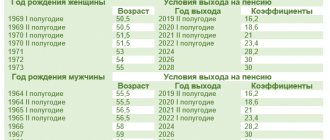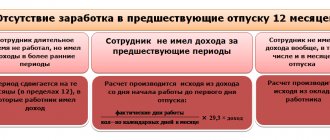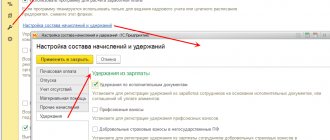The regions of the Far North are characterized by difficult living conditions associated with local natural and climatic features. Therefore, social security for citizens employed in the specified area provides numerous privileges and benefits, including a vacation trip within the Russian Federation paid for by the enterprise.
In addition to the paid days of rest provided to citizens on a general basis, an additional paid period has been established for those who work in the Far North (24 calendar days) and in equivalent regions (16 calendar days). Organizations located in these areas must reimburse employees for travel and return travel expenses from their own resources.
Who receives reimbursement for vacation travel and in what cases?
Only residents of the Far North who have official employment in the specified region of the Russian Federation can count on preferential travel.
According to the Federal Law on State Guarantees (Article 33), a trip across the territory of the Russian Federation to the place of vacation and back is paid to the employee with the company’s funds once every 2 years. When using rest days to travel across the territory of the CIS countries, payment is made if there is a corresponding clause in the employment contract drawn up between the organization and the citizen.
In accordance with the rules defined for employers in the northern zone of Russia (RF RF No. 456, 06/12/2008), reimbursement of expenses for days on the road is made taking into account certain points:
- The right to take advantage of preferential travel passes arises simultaneously with the right to receive generally accepted labor leave (according to the schedule).
- The 2 years allocated for a preferential trip are calculated in the total amount of jobs of a citizen in the North.
- Compensation is paid by the employer even upon dismissal of a citizen returning home from vacation. He is entitled to compensation for round trip travel and payment for travel to his place of residence.
- All rest days are counted as calendar days, so payment for holidays or working days is made the same.
- Payment of compensation is made based on the presentation of documents confirming the citizen’s departure from the region.
- If an employee goes on vacation with disabled family members, then their movement and transportation of luggage (up to 30 kg) are also paid for by the company.
Important! When signing an employment contract with an employer, it is advisable to indicate in the text of the document the family members of the employee who are entitled to travel compensation when going on vacation, thereby avoiding possible disagreements in the future. The definition of persons classified as family members is specified in the Federal Law on the subsistence level in the Russian Federation (No. 134, October 20, 1997).
Deadlines
According to the provisions of Art. 120 of the Labor Code, holidays and non-working days are not included in the duration of preferential leave by law.
The timing of preferential leave largely depends on the basis for its provision. Thus, the duration of additional leave for irregular working hours is determined by internal regulations approved by the employer. At the same time, taking into account the requirements of Art. 119 of the Labor Code, the minimum duration of preferential leave is 3 calendar days.
If an employee has an irregular day, then preferential leave is provided to him regardless of whether he was involved in overtime work outside the working day or not.
Additional leave for employees who are employed in jobs with harmful and dangerous working conditions is at least 7 calendar days . The actual duration of such leave may be established by the norms of intersectoral agreement and collective agreement.
Workers who are employed in the Far North can count on additional paid leave, the duration of which is 24 calendar days . Also, employees working in areas equated to the Far North can count on additional vacation days. Preferential leave for them is 16 calendar days.
Additional leave for performing work of a special nature is granted on the basis of a government decision . The government is also obliged to resolve issues with the duration of preferential leave. In particular, general practitioners have the right to three days of additional annual leave provided they have worked in the specified specialty for three years.
Disabled people are not entitled to preferential leave by law . But they are provided with extended annual paid leave of 30 days instead of 28 (under 181-FZ). Leave of this duration is available to all employees with disabilities, regardless of group. A disabled person must confirm his right to extended leave in writing and provide a certificate from a medical organization confirming his disability.
Also, upon written application of a disabled person, he must be granted administrative leave at his own expense for up to 60 days (under Article 128 of the Labor Code).
By default, working pensioners are not entitled to additional leave unless such a preference is provided to them by the norms of the collective agreement. But working pensioners are granted leave at their own expense for up to 14 days based on their application (under Article 128 of the Labor Code). The right to such leave must be confirmed with a pension certificate.
An employee who has received an occupational disease, or whose health has been damaged due to an industrial accident , additional leave is granted for the entire period of necessary sanatorium-resort treatment, as well as for the time required to travel to the place of treatment, in accordance with paragraphs. 10, paragraph 2, art. 17 FZ-125.
Some health care workers (for example, those caring for people living with HIV) may qualify for 14 days of reduced paid leave.
Combat veterans can apply for leave without pay for 35 days a year (according to paragraph 11, paragraph 1, paragraph 4, paragraph 2, article 16 of the Federal Law-5). Also, all military personnel with a combat veteran certificate are given an additional 15 days of leave.
According to the current rules, preferential leave for any reason can be provided to the employee in advance. The only exception is additional leave for hazardous working conditions.
As for additional leave for harmfulness, it is granted in proportion to the time that the employee worked in dangerous and harmful conditions. This position is contained in the explanatory letter of Rostrud dated 2008 No. 657-6-0.
Features of paying for discounted travel
On vacation, the cost of travel in both directions when traveling by transport is compensated:
- in a compartment carriage of a train (railroad);
- on an airliner;
- automobile (not counting taxi);
- water (in cabins of the 3rd category of river vessels, on sea vessels - in cabins of 5-8 tariff groups).
Luggage fees (up to 30 kg per person) are also subject to compensation.
When traveling by personal vehicle, expenses calculated based on the lowest cost of the shortest route to the final destination of the route are compensated. In this situation, the employee must submit to the accounting department of the enterprise documents confirming his stay outside the northern territories of the Russian Federation during the period under review.
Travel expenses for the vacation of the employee himself and his family members are financed from various sources. Costs for the employee are included in the cost of the organization's products (RF PP No. 661, 07/01/1995), and payments for his family members are made from the portion of the profit remaining at the disposal of the enterprise. Therefore, if the organization has no profit, payment for travel expenses incurred by the employee’s family members cannot be made.
Reimbursement for transportation costs is issued to the employee before leaving on vacation based on preliminary transportation costs, and the final payment is made based on the provided travel documents upon the employee’s (his family members) return home.
If an employee visited several settlements on the territory of the Russian Federation during the specified period, expenses are reimbursed only to one of the points (at the employee’s choice), and the return trip is reimbursed along the shortest route from the selected point.
When traveling to other countries, travel to the border of the Russian Federation and back from the border to home is paid.
The settlement point is the customs office at the exit and entry from the country (checkpoint or airport). If the nearest airport itself is located outside the northern territory, then both the employee and his family members will get to it with full travel compensation.
If an employee does not use his right to rest, then upon dismissal he is entitled to monetary compensation.
Important! Transport reimbursement benefits do not apply to rotational workers not residing in the Northern Territory.
When the right to compensation is lost
When the end of the 2-year period for the right to use the benefit approaches (1-2 months in advance), the enterprise administration notifies the employee in writing about this.
According to Decree of the Government of the Russian Federation No. 455, the opportunity to receive compensation is lost if it is not used within the allotted period. Transferring rest days or benefits to pay for transportation costs is not permitted.
Important! Employees who are not working due to childcare and pregnant employees cannot use this right. An exception will be the situation when an employee interrupts care leave and writes an application for annual leave. Then, when traveling outside the North, the cost of travel costs both ways will be compensated by the employer.
Changes in legislation in 2021
In April 2021, a law was passed amending the Tax Code (Articles 250 and 270). According to the new orders, each employee of any state-owned enterprise acquires the right to receive compensation for travel to a vacation spot from his employer. A compensation of 50 thousand rubles is provided, but only on the condition that the employee travels within the Russian Federation. The following expenses may be reimbursed:
- Cost of travel tickets.
- Expenses associated with accommodation in a holiday home, hotel, etc.
- Expenses for receiving sanatorium-resort treatment.
- Cost of excursion programs.
In practice, the application of the law depends on the wishes and capabilities of the employer. Only those companies will carry out this practice for which it is profitable to classify the amounts spent in this way as expenses when calculating the tax base. This means we are talking about large organizations. Because It is simply unprofitable for medium and small businesses to withdraw such amounts from production.
Taxation and insurance of preferential payments
Regardless of the taxation system adopted by the enterprise, compensation for employee expenses for moving across the country to their location during vacation and back is not taxed:
- tax on the income received by citizens (Article 217 of the Tax Code of the Russian Federation);
- deductions for compulsory pension or health insurance (Article 9 of Federal Law No. 212, July 24, 2009);
- contributions for insurance against industrial accidents and occupational diseases (Article 20 of Federal Law No. 125, 07/24/1998).
Exemption from taxes and insurance contributions is determined by the internal documents of the organization:
- in the amounts established in contracts (labor, collective), Regulations on days of rest;
- with the frequency specified in contracts or regulatory documents of the enterprise (at least once every 2 years);
- when providing a list of supporting documents established by the collective agreement or other documents of the organization.
When working under a simplified taxation system, the enterprise base taken into account for the calculation is not reduced by the amount of compensation expenses for employee travel on vacation (Article 346 of the Tax Code of the Russian Federation).
When paying a single tax on the difference between expenses and income, an organization can take into account preferential travel expenses for employees as part of labor costs.
What legal norms govern
Each employee is entitled to annual paid leave. This right is guaranteed by the provisions of Art. 124, 114 Labor Code. As a general rule, the duration of annual leave is 28 calendar days under Art. 115 TK.
But there are exceptions to this rule: certain categories of employees are entitled to extended basic leave. In particular, additional education teachers who work with children with disabilities are entitled to 56 days of leave under Art. 334 of the Labor Code and Government Decree No. 466 of 2015.
The right to receive leave arises for an employee after working for six months . This is stated in Art. 122 of the Labor Code. But with the consent of the employer, early leave is allowed. As for additional paid leave, it can also be provided at the employer’s discretion for certain categories of employees who are not entitled to it by law.
The list of employees who can count on receiving additional paid leave is listed in Art. 116 of the Labor Code. The specifics of determining the period for granting leave are prescribed in Art. 120.
In addition to the Labor Code, the procedure for granting additional leave may also be provided for by a collective agreement or other local legal act adopted at the enterprise (in accordance with Articles 8, 9 of the Labor Code).
If there is a trade union organization at the enterprise, the employer must take its opinion into account when determining the procedure and conditions for providing preferential leave.
Labor legislation does not contain a ban on combining vacations (annual paid and preferential) into one vacation.
It is also possible to divide the vacation into several parts by agreement with the employer. In this case, one of these parts cannot be less than 14 calendar days.
Legislation used to calculate and pay travel benefits
Orders and norms used in determining the amount and procedure for paying money for transportation expenses for workers in enterprises and organizations of the Far North of the Russian Federation must be reflected in the internal regulations of the organization and at the legislative level.
In addition to trade union regulations, labor and collective agreements, the main defining regulations are the following:
- Government Decree on the appointment of compensation for travel expenses on vacation (No. 455 of June 12, 2008).
- Labor Code of the Russian Federation:
- on the right to preferential travel once every 2 years at the expense of the employer (Article 325);
- on the right to preferential travel for those combining work and study or two jobs (Article 287);
- on the number of additional preferential days for rest (Article 321, Article 325).
- The Tax Code of the Russian Federation contains provisions on accounting for compensatory travel expenses when forming an enterprise reserve (Article 324).
- The federal law:
- No. 50 (04/02/2014) regarding the description of the procedure for providing benefits and the payment procedure;
- No. 4520 (02/19/1993) regarding the description of guarantees and compensation for those employed in labor activities in the northern regions of the Russian Federation.
Not only state employers in the Far North, but also private entrepreneurs are required to compensate their employees and their family members for traveling to their vacation destinations.
An employee receives the right to pay for transportation costs after 1 year of work in the organization and every second year thereafter (fourth, sixth, and so on), without taking into account the time of actual use of the right to rest.
An employee may receive compensation for his travel expenses for vacation not immediately at the time of acquiring the right, but in subsequent years of working activity. The amount must be paid as if using vacation for 1 year or combined for 2 years.
Important! It is undesirable to accumulate benefits for transport expenses, because the employer, for various reasons, may refuse a one-time payment for several two-year periods. If an employee files a claim, a court decision may order the employer to make payments for no more than three years, that is, the plaintiff cannot exercise the right to transport compensation for all periods except the last one.
Who is entitled to preferential leave?
According to Art. 116 of the Labor Code, preferential leave can be classified depending on who is entitled to additional annual leave:
- For workers with irregular working hours (under Article 119 of the Labor Code).
- For workers involved in work with harmful and dangerous working conditions (under Article 117 of the Labor Code). Such leave is entitled to employees if, based on the results of a special assessment, their working conditions were found to be harmful (grade 2, 3 or 4) or dangerous.
- For workers of the Far North and equivalent territories (according to Article 321 of the Labor Code).
- For workers performing work of a special nature (according to Article 118 of the Labor Code).
- For other employees , if their right to preferential leave is provided for in federal legislation.
Preferential leave is granted, in particular, to rescuers, military personnel, judges, customs officers, military personnel, athletes, Chernobyl victims, etc.
How to apply for compensation for travel on vacation
In order to count on reimbursement for travel expenses on vacation, an employee of northern enterprises going on vacation should write a statement to their management. He will still write it without fail to go on vacation. It is only necessary, in addition to the usual mandatory points, to additionally include some data there:
- the place where a person is going to go on vacation;
- the type of transport he will use to get there;
- the cost of travel along the shortest route;
- references to legislative acts according to which he is entitled to this payment.
It is necessary to attach copies of tickets or boarding passes to your vacation destination (airplane, train, water transport), as well as checks for payment for baggage transportation.
If a person drives his own car, the application will need to be accompanied by:
- a certificate stating that he actually visited the declared vacation spot;
- a copy of the license and registration certificate for the car;
- receipts for gasoline received at gas stations along the way.
Upon receipt of this application, the head of the organization issues a special order, which is the basis for the personnel department and accounting department when calculating and paying vacation funds.
Proof of expenses must be submitted at least three days before departure. Upon return, a recalculation may be made.
Registration procedure
Typically, preferential leave is included in the vacation schedule being developed for the next calendar year. The number of days of leave required by law and the duration of preferential leave are summed up and the resulting value is indicated in the schedule.
The vacation schedule for the next year is drawn up no later than two weeks before the start of the next year (before December 17). If an employee goes on vacation as scheduled, he does not need to write a statement.
The employer's responsibilities include notifying employees in writing about the upcoming vacation 2 weeks in advance and issuing a vacation order. If he does not notify the employee of the proper leave, then the time frame for the leave is shifted.
But if an employee would like, in agreement with the employer, to go on vacation outside the schedule, then he must write a written application. Such a statement is drawn up in a free format and does not have a set form.
The application must contain the following information:
- Full name of the manager or official in whose name it is submitted.
- Full name of the employee who is submitting the application , his position and department.
- Title of the document.
- Please provide additional leave indicating the time period and with reference to the legislation giving the employee such a right.
- Date of application.
- Employee signature and transcript.
A sample application for preferential leave for workers in the Far North can be downloaded here.
In the work time sheet in the T-12 form, additional leave is indicated by the employer with the code “OD” or “10”. If there are non-working days during the grace period, this is indicated in the timesheet using the code “c”.
In the employee’s personal card in the T-2 form, it is advisable for the employer to separately indicate the main paid leave and additional paid leave taken by the employee so that there is no confusion.









